Adolescence challenges audiences with its authentic portrayal of youth caught in complex tragedy. The series opens with cops in a northern English town barging into the bedroom of 13-year-old Jamie Miller and arresting him on the count of killing a female classmate named Katie.
This psychological crime drama explores the dark corners of teen minds when confronted with unprecedented accusations. Adolescence doesn't shy away from complex questions about the nature of evil itself, family, and guilt.
The four-part limited show is narrated in real-time, one-shot format, with Philip Barantini as director. Every episode unfolds like a stage play, creating an intimate ambiance that makes every dialogue count.
The series features Stephen Graham as Eddie Miller, the father struggling to understand his son's actions. Adolescence compels viewers to control uncomfortable truths about how kids can commit terrible crimes. The show examines the accused and the entire family torn apart by these events.
10 shocking quotes from Netflix's Adolescence
1) "Are you all right? You look a bit red. Did I scare you when I shouted? I mean, I'm only 13. I don't think I look that scary." — Jamie Miller
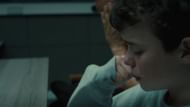 A still from the show (Image via Netflix)
A still from the show (Image via Netflix)Jamie asks these questions in an intimidating manner to the counsellor. The boy comes off as sarcastic and threatening to the lady. The condescending tone creates a disturbing contrast with his innocent face.
Jamie's words reveal a childlike awareness mixed with something intense. Adolescents use these moments to display the complexity of the accused teenager.
2) "Get the day back."- Eddie Miller and Manda Miller
 A still from the show (Image via Netflix)
A still from the show (Image via Netflix)Eddie Miller and the family try to reflect on the fourth episode of what is gone. They realise that they can not bring back the days they shared as a family. However, I try to bring some joy into their life and spend time together. This quote reflects on the power of resilience in the face of adversity.
3) "Do you know what I don't like about all of this? Right, the perpetrator always gets the front line. Katie isn't important. Jamie is. Everyone will remember Jamie. No one will remember her." — Misha Frank
 A still from the show (Image via Netflix)
A still from the show (Image via Netflix)Detective Misha Frank expresses frustration about how criminal cases are portrayed in the media. She points out that victims often turn secondary to their alleged attackers.
The detective's words highlight society's fascination with criminals over those who cause trouble. Misha speaks for Katie, the murdered teen who cannot speak for herself. Adolescents constantly question who deserves attention in such tragic cases.
4) "I took him to footy, didn't I? Because I thought it would toughen him up. No, but he was crap. So they just stuck him in goal. And I just stood there at the side of the pitch while all the other dads were laughing at him." — Eddie Miller
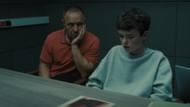 A still from the show (Image via Netflix)
A still from the show (Image via Netflix)Eddie recalls a painful memory of his son's failure at football. The father embarrassingly remembers standing helplessly while other parents mocked Jamie's poor performance. Eddie admits he could not even look at his own song during those moments.
The quote reveals the disappointment and shame that poisoned their connection. In Adolescence, minor failures become larger wounds within families.
5) "If my dad made me, how did I make that?" — Eddie Miller
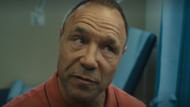 A still from the show (Image via Netflix)
A still from the show (Image via Netflix)Eddie asks this dangerous question while reflecting on his role as a father. He wonders how his own upbringing influenced the way he brought up Jamie. The father struggles to comprehend the cycle of influence between generations. Eddie's words reveal his intense psychological wounds and guilt. Adolescence explores how parenting failure can echo through time.
6) "All kids really need is one thing that makes them feel okay about themselves." — Misha Frank
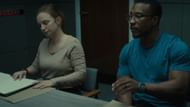 A still from the show (Image via Netflix)
A still from the show (Image via Netflix)Detective Frank shares her insight into child psychology during the investigation. She believes that self-worth is important for healthy development in young people.
Misha suggests that Jamie may have lacked this fundamental element in his life. Her words offer an ordinary yet profound truth about raising kids successfully. Adolescence displays how the absence of self-esteem can lead to offensive behavior.
7) "Everyone was calling her a slag, you know, or flat, so I thought if she was that weak, she might like me. It's clever, don't you think?" — Jamie Miller
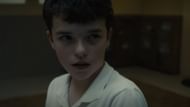 A still from the show (Image via Netflix)
A still from the show (Image via Netflix)Jamie explains his reasoning for approaching Katie. The boy confesses he targeted her because others rejected and bullied her. Jamie believes Katie's vulnerability would make her more responsive to his attention.
His calculated thinking reveals a complex mindset about the opposite genders. Adolescence displays how manipulation can masquerade as romantic interest.
8) "What you think is more important than what's true." — Briony Ariston
 A still from the show (Image via Netflix)
A still from the show (Image via Netflix)Briony, a legal counsellor, makes this observation about perception versus the truth. She highlights that truth becomes secondary to story in such cases.
Her words reflect the series's exploration of subjective versus objective reality. Adolescence question whether one can ever truly know what happened.
9) "That night, I didn't touch her. I could've touched her, but I didn't. I just had a knife. She was scared. But I didn't do that. Most boys would have touched her. So that makes me better." — Jamie Miller
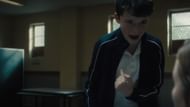 A still from the show (Image via Netflix)
A still from the show (Image via Netflix)Jamie makes this troubling confession during questioning about the night he killed Katie. The boy believes his restraint displays moral superiority over other teens.
Jamie believes that not assaulting Katie's sexuality makes him a better human being. His twisted logic reveals a fundamental problem of boundaries and consent. Adolescence exposes how criminals rationalize their behavior.
10) "I'm sorry, son. I should have done better." — Eddie Miller
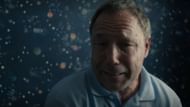 A still from the show (Image via Netflix)
A still from the show (Image via Netflix)Eddie speaks these words as the last apology to his problematic son. The father accepts responsibility for his failure to raise Jamie properly.
Eddie recognizes his role in creating the situation that led to tragedy. His apology represents the ultimate recognition of parental guilt. Adolescence displays how parents must face their own contribution to their child's crimes.
Adolescence delivers unforgettable moments through these compelling quotes that reveal the psychological complications of family dysfunction, crime, and the tragic consequences when young lives spiral out of control in problematic ways.
Why did you not like this content?
- Clickbait / Misleading
- Factually Incorrect
- Hateful or Abusive
- Baseless Opinion
- Too Many Ads
- Other
Was this article helpful?
Thank You for feedback
About the author
Edited by Mannjari Gupta

.jpg) 1 hour ago
3
1 hour ago
3

 English (US)
English (US)